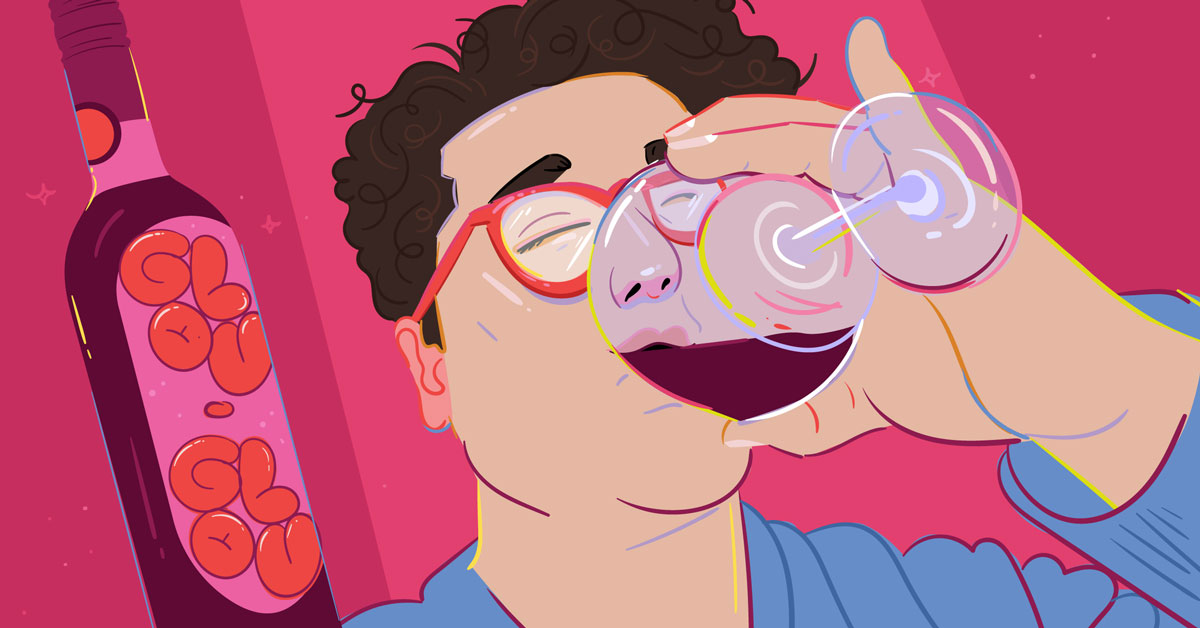
Veteran wine importer Jenny Lefcourt, one of the original champions of natural wine in the United States, has just come home to New York from a tasting at La Dive Bouteille, the largest natural wine exposition in the world, featuring hundreds of winemakers and thousands of attendees from around the globe. Twenty years ago, at the same tasting, Lefcourt recalls, “there were probably 12 winemakers there and maybe 50 people [attending].” As much as things have changed, setting foot in the Loire Valley brought Lefcourt back to the site of her wine awakening in the late 1990s, where the light-bodied reds of the region inspired her importing business.
“What sort of drew me personally, my own personal palate to wine, were glou-glou wines, even if nobody was using those terms,” Lefcourt tells me. “When I first started working in natural wine there wasn’t even really the term ‘natural.’ There wasn’t really any term.”
The ensuing two decades have seen natural wine skyrocket, and with it, “glou-glou,” a term that seemed to emerge spontaneously in the aughts to describe the bright, revelatory Beaujolais wines of Marcel Lapierre. According to Lefcourt, the French like to describe these wines as “digestible.” The natural winemaker Stefano Bellotti once described his pursuit to make wines that, above all, “win you over” and that “you don’t think about, that you take great pleasure in drinking.”
Glou-glou’s playful, almost twee energy is a clear and intentional divergence from the perceived austerity of more traditional wine culture. Today, it has become an all-purpose infinitive—a noun, an adjective, a verb—that captures the free spirit of natural wine, but also its burgeoning free enterprise. “Glou-glou” has lent its charms and name to a magazine; to wine shops from Luxembourg to Vietnam; to a celebrity wine from Eric Wareheim, who at this point might be better known for his juicy reds than his absurdist comedy. In this age of natural wine evangelism, “glou-glou” has become a defining mantra, while simultaneously threatening to flatten the boundless world that inspired it. Glou-glou, wrote the wine writer Simon Woolf, “has now become a meta-profile for natural wine overall.”
It’d be easy to imagine “glou-glou” as “rosé all day” for the natural wine set, a New Age “It’s toasted.” But as is often the case, what’s new is actually quite old. The term was first seen in Le Médecin malgré lui (The Doctor In Spite of Himself), a 1666 Molière play about a contemptible drunkard, who at one point coos a song of sweet nothings to a bottle of wine: How sweet and pretty are your little gurglings; my fate would make many jealous if you were always full. Oh, bottle, my dear, why are you emptying yourself?
The word is a French onomatopoeia used to denote the sound of liquid squeezing its way out of a narrow opening. The “glou-glou” of wine is the sound of, as the British philosopher Barry C. Smith put it, “a moment when everything in the rush of experience is briefly stilled.” (“Am I imagining things when I say that good wine makes a different, gentle gurgling, surging sound when poured from the bottle?” Smith asked in the 2007 essay collection Questions of Taste: The Philosophy of Wine.)
It would take more than three centuries for “glou-glou” to lend its nomenclature to a style of wine: vin de soif, thirst-quenching wines low in alcohol and tannin, popularized by the Beaujolais region of France and lauded for their fresh, juicelike nature. Critics of glou-glou’s growing dominance in the natural wine world, including Woolf, suggest the methods of achieving such juiciness (including carbonic maceration) deny a wine full access to the terroir it was born of, and thus standardize an almost-universal flavor profile; that is, they suggest glou-glou is a minor-scale repetition of Parkerization, a paradigm the natural wine movement has stood in stark contrast to.
Perhaps it’s most instructive to see glou-glou as a microphenomenon within something larger. Its rise has come in lockstep with another word that has defined the past decade of drink culture: “crushable.” And the point of convergence between the two buzzwords is something being considered by the biggest beverage conglomerate in the world, in case there was any doubt that glou-glou has moved beyond niche wine circles. When I talked to Karmen Olson, the innovations lead at Anheuser-Busch, in 2021, she mentioned exploring the concept of glou-glou for new beer projects.
“It means something similar to ‘crushable,’ but there is this nuance that is harder to describe,” Olson said. “I’m working with our brewers on setting this up: What does ‘glou-glou’ mean? How might it be translated to be relevant for beer? And they’re not quite grasping it. Gluggability isn’t exclusively about slamming a drink. It’s not about drinking it quickly or without thought. It is slightly less intentional than a more complex wine or something, but I don’t know how else to describe it.”
Of course, there is irony in applying corporate-level design thinking to glou-glou, in considering the future so deeply that one loses sight of the now. According to Bellotti, “When you do this you are intellectualizing wine, and wine doesn’t give a shit about being intellectual.”
